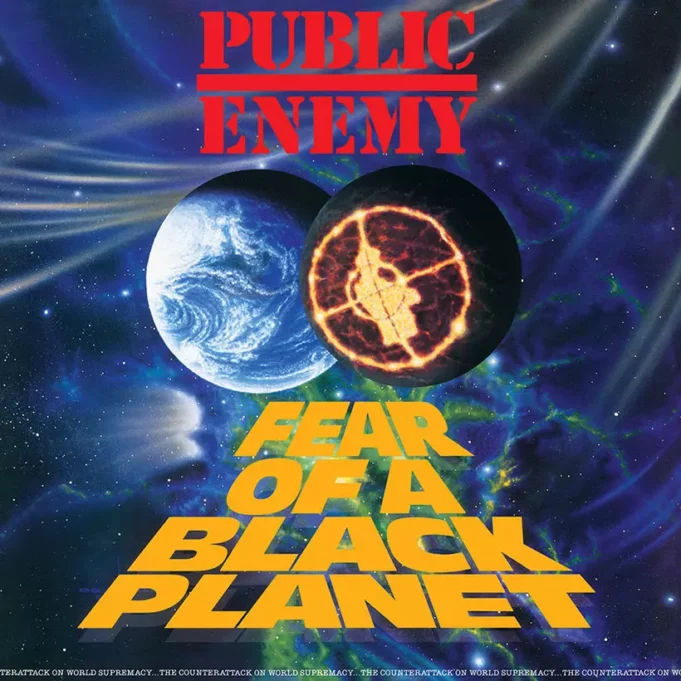Chuck D is a living legend. As co-founder and frontman of the iconic rap group Public Enemy, he is a hip hop industry pioneer, who advocates the independent delivery of music to the public and helped lead the digital download revolution. In part 1 of his recent interview with Final Call National Correspondent Charlene Muhammad (see Vol. 42 No. 35), Chuck D shared his viewpoint on hip hop at 50, its worldwide impact, and personal influences on him and the genre to date. Below are excerpts from the continuation of that interview.
CHARLENE MUHAMMAD (CM): What are some lessons to learn in terms of finance, control, and owning masters?
CHUCK D (CD): That’s a whole other article. But I think what you have to understand is that you have the “show,” and you have the “business.” And sometimes it’s hard to do maybe two things at once. So that’s where you always have to build your teams, your unit and people who are diversified in different areas.
I think if you’re going to go into art as being part of the industry, and hip hop as being part of the industry, it behooves you to assemble some kind of team around you. And if you don’t assemble a team around you that really is from your family and community, you have to see if you can actually still bring your people along as an apprentice. That’s difficult in this business, but you have to make sure it’s done.
You might have to get a non-Black lawyer, but can you actually have them train or learn under, while this person is actually doing their thing? There’s a lot of prevention for that to happen because people in those areas of accounting and legal, they seem to only apprentice their family. And that happens to be a big mistake in the United States of America, especially. Because the aspect of racism simply was, ‘Well we don’t want you part of our family.’

Once you say that somebody can be eligible and part of your family, then all those fake constructs start to drop because you start looking at people like, ‘Well, you could be my daughter-in-law, you could be my son-in-law, and you know, the grandchildren could co-rise out of you. And that way, we could defeat racism.’ But if you have the constructs that are up there, don’t expect them to not follow also in business.
CM: Teach on that! Last question: Comment on the role of women in hip hop, starting then and the evolution to now.
CD: I think the role of women in hip hop also mirrors the role of women in the industry. It’s that for long, women have not been able to actually speak from their own voices. They haven’t been able to speak from their own point of view … and also their positions to actually control their narrative. And whenever males have come and put their thumbprint on it, it seems like you have side effects that don’t really seriously make it equal as a forward movement for everybody.
So, I think that when you have a Queen Latifah, an MC Lyte, a Lauryn Hill, I think the relationship is like if they’re coming along, and then you have a Lil’ Kim and a Gangsta Boo and a Foxy Brown, and they don’t communicate with the ones that have pioneered, and the MC Sha-Rocks. I think there’s a total community in there. And I don’t think it has to be one particular type because they’re all expressions.
I think when the separations are done by businesses, society, and also males, I don’t think it’s as strong as it could be. And all you’ve got to do is look at Latifah on TV, and Latifah’s done everything! Queen Latifah’s done anything and everything that she’s wanted to do. And same thing with MC Lyte. So, I think that they’re unbelievable examples.

(Chuck D also commented on other shifts in the industry he has observed)
CD: I think if anything has affected the hip hop idiom it’s that the business allowed the disintegration of groups. And when you have a team and a group effort, nothing can stop it. But when it comes down, the business has made it so attractive to negotiate with a few as opposed to the many.
And here’s another thing: if you have a group, not everybody’s supposed to be equal in a group, but you have people that fulfill roles, and they should have ownership of their roles. But that has long been destroyed. I think that’s what’s been the Achilles Heel of hip hop and rap since the early 1990s, that they found a way to create soloists when before it was groups.
They’ve done the same thing in Black music, too, as far as R&B and all that. The Earth, Wind & Fires, the Commodores, the Atlantic Stars and all that, the destruction of them and to turn it into one or two people as opposed to the many is what Public Enemy initially wanted to make a statement against. Yes. We are a sum of a lot of different parts.
And we believe that a lot of parts should be able to have their place inside the music business. But the soloist movement has been, to me, a business grenade ever since the early 90s, because they didn’t want to negotiate or what we call ‘re-negroe-tiate’ with more than three or four negroes at a time. (hearty laugh)
When you talk about the greatest rock groups of all time, every once in a while they talk about Elvis or Rod Stewart or David Bowie. But, with the White groups, man, it’s the Beatles, Led Zeppelin, The Who, Rolling Stones, and they keep going on—Styx, Def Leppard, Metallica, Nirvana, Foo Fighters.
And when it comes down to Black groups, you’re naming one person. Right there tells you the schism of what happened to our music when you lose the narrative and it boils down to one. That was the first destructive grenade. It’s all right to do solo projects, but the group still has to be in order, somewhat. It doesn’t mean that you go around touring the world.
I mean, Public Enemy’s in our 60s, so, doing big things at the right place at the right time behooves our time and our age, I would say. That doesn’t mean that we can’t do it. But we got other things to do. I have many people I’ve hired as volunteers and people I’ve got to figure out how to pay, so we’ve moved to different areas of the business, as opposed to the show.
One thing I learned from Minister (Louis) Farrakhan when I asked him and he pulled me to the side when we played the Houston Astrodome in 1995 and Black Family Day … before I rolled out, me and him talked for a second. And I said, ‘Brother Minister, what do you see?’ And by then, we (Public Enemy) had had an eight-year career. And his message was, ‘what you’ve got to do is build proteges.’ So, I’ve been working on that all my whole career, always building proteges.
But they might not be proteges, like people that make records. They might not be people that just come out and you notice them from a popular standpoint. No. These are proteges that are probably in other aspects of the music business that have had really influential careers to help so many others. And so, just the Minister’s advice with those two words said a lot!
CM: Thank you, and I’ll be on the lookout for those ‘screenager’ t-shirts!
CD: People listen with their eyes and that is a severe problem. … ‘Don’t Believe the Hype’ also boils down to this: Trust none of what you hear and half of what you see. But right now, it’s reciprocated, flipped—trust half of what you hear, but none of what you see. Meaning that you can look at it with your own eyes, but, deep fakes are coming! AI (Artificial Intelligence) is coming.
But how many people are listening? Listening is an old trait from the previous century. So, there’s a lot of jewels just in closing your eyes and listening out because that’s where a lot of the truth is, it’s in listening. Before, the truth was like, ‘I don’t want to hear what you’ve got to say.
I want to see it for myself.’ Well, the truth was maybe what you saw. But now when people are ‘screenagers,’ now it’s not what you see because you’re looking through a screen. You know what I’m saying? So, you’re looking through a screen and deception is everywhere on what you see. So, you’ve got to take a moment. Slow the time down. Close your eyes and listen for the truth.
CM: Wow! This has been phenomenal. I really thank you, and on behalf of The Final Call and of course, the publisher, the Honorable Minister Louis Farrakhan. Thank you for always making time for us. We appreciate it.
CD: Nah! I appreciate it, more than you know.
CD/CM: Simultaneously: As-Salaam Alaikum!













